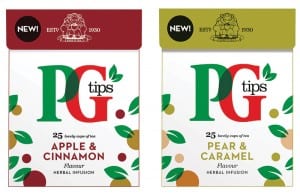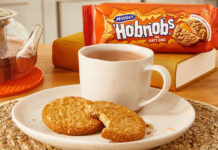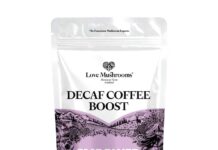TEA, it’s an ever-present part of Scottish and British life. But, commercially, mainstream tea has found things tough in recent times.
Never the most expensive drink, pricing of everyday tea has been especially competitive in the recession and the long slow period where the economy has been recovering.
As Andrew Pearl, director of customer and shopper marketing for Scotland’s biggest-selling tea brand Tetley put it: “Because tea is such a staple part of everyone’s daily life it’s an area that has been hampered by the hugely competitive nature of the market, not only within grocery but in convenience as well.

“Retailers have used it in the competitive environment and that drives down shopping spend.”
But while there has been some gloom about certain aspects of the market there are also good points.
One is that tea remains the most popular drink, accounting for one in three in-home drinks. Another is that speciality teas are doing very well and not just in supermarkets. And another is that we are all getting older.
Kantar did a major piece of research on consumption patterns over typical consumer lifetimes, Pearl said.
As people get older they drink more tea, and the country has an ageing population.
“So they predict a positive future for tea,” he said.
“Another huge thing to consider and I would say this is particularly relevant for convenience is that it is all about health.
“We know from our own research that about a third of all shopping decisions within tea are driven purely on health grounds.
“Green teas, fruit teas and herbal teas are doing fantastically well, that’s true in Scotland and in convenience.”

Green tea currently makes up around 5% of teas sales in convenience outlets but sales are growing 25% year on year.
“We’ve also had a look at premiumisation and coffee has done fantastically well with pods,” he said.
So Tetley is considering possibilities for the long-term. But before that Pearl reckons that it and other tea companies should be trying to encourage higher take up of fine tea in a bid to increase the consumer spend in the market overall.
“Green teas, fruit teas and herbal teas are doing fantastically well, that’s true in Scotland and in convenience.”
The firm recognises it is a tough market for mainstream brands, he said, as many consumers simply aren’t as loyal to brands as they once were.
But with significant activity in advertising and in social media, where Tetley, with more than 500,000 followers has been shown to be the most successful tea brand and the second-most successful fast-moving consumer goods brand after the beer Kronenbourg 1664, it is working to benefit from its strong brand heritage, he said.
In advice to retailers Tetley says it’s important to: select the right tea brands; get the mix right and explore the growth areas in tea, such as green teas and fruit teas, think carefully about pack sizes and achieving the right value; and consider initiatives to create excitement about tea and drive sales.
In Scotland Tetley has around 40% of sales and is the leading black tea brand. And the firm says it is the second-biggest and fastest growing green tea brand. Pearl said in convenience the top-selling tea brands account for 85% of sales so retailers should stock the best sellers and block brands so customers can find what they want.
• Unilever-owned tea brand PG Tips expanded its green and fruit and herbal tea ranges with the launch of seven new flavours last month. The new green tea flavours include Green Tea Strawberry Cupcake, Green Tea Lemon Pie, and Green Tea Orange, and the new fruit and herbal flavours include Apple & Cinnamon, Honey & Lemon Balm, Pear & Caramel, and Cool Citrus.
Unilever says PG Tips has grown its fruit and herbal and its green tea sales by over 64% in the past 12 months.
It argues that flavour is a key driver of the fruit and herbal and green tea sub-categories and customers are looking for new flavours to make their drinks more interesting.
The fruit and herbal and green tea markets have gone from strength to strength over the last year – with share growth of 18% collectively, it says.
• t specialist tea firm, Ahmad Tea, Dr Ali Afshar said he thinks 2016 will see a continuation and expansion in the shift towards speciality teas, as consumers increase their appreciation and knowledge of the quality and variety that teas and infusions can offer.
In response Ahmad Tea has launched Dessert Teas, a range of six teas inspired by classic desserts, with flavours such as Strawberry Velvet Cake, Pear & Cinnamon Strudel, Moroccan Orange Slice black teas, and Citrus & Mint Sorbet, Strawberry Basil Coulis and Mango & Lychee Soufflé green teas.
“It seems the market place for tea is heading in the same direction as coffee, with a variant of flavours suitable for different occasions and different brewing methods to suit one’s needs, whether that be for your everyday teabag for an instant cup or a pot of loose leaf for more formal occasions,” he said.






















